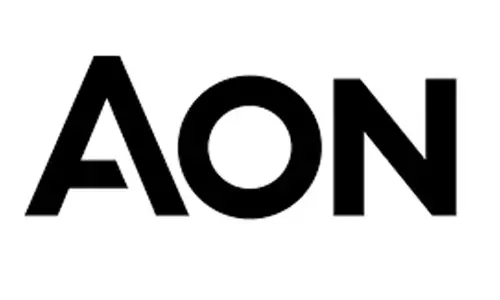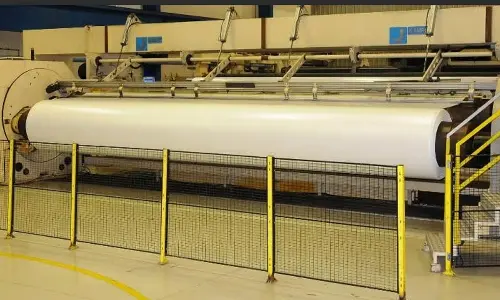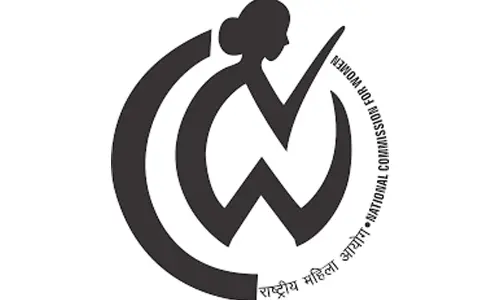AI Integration in Construction: A Key Driver for Sustainable Initiatives - Puneet Bansal, Co-Founder, R-Dash

R-Dash, a SaaS platform, addresses challenges in the construction industry by streamlining project management and enhancing transparency and efficiency.
The construction and fit-out industry faces significant challenges, such as fragmented communication, manual project management processes, and difficulties in overseeing multiple projects concurrently. These issues often lead to miscommunication, delays, and cost overruns. Furthermore, skilled labour shortages, workforce management problems, and environmental sustainability concerns intensify the industry's challenges.
R-Dash, a SaaS-based platform, was founded by Puneet Bansal, Amit Bansal, and Amit Mishra to streamline project management processes in the Indian commercial fit-out sector. Recognizing inefficiencies in traditional methods, they shifted focus to B2B fit-out needs, in early 2023, R-Dash was conceptualized. Headquartered in Gurgaon, R-Dash addresses fragmented collaboration among developers, contractors, and design studios by offering a community-driven platform. Through continuous innovation, it aims to digitize the construction industry by enhancing efficiency and transparency in project management.
Puneet Bansal, Co-Founder of R-Dash, shared his insight on how AI platforms like R-Dash are helping bridge the need gap in the construction industry in an interview with The Hans India.
Puneet Bansal, Co-Founder of R-Dash
What motivated the inception of R-Dash? What kind of gaps exist in the construction industry?
The inception of R-Dash was motivated by the significant challenges faced by builders in the construction industry. In real estate projects, builders face several challenges. Communication and transparency are big issues. They struggle to explain design plans to different subcontractors like Civil, MEP, and Interiors. It's hard to keep everything in sync between the project plan and how things are progressing. Toward the end of projects, like the last 5 steps, it's tough to check everything thoroughly, which delays finishing. Making sure subcontractors know about any design changes quickly is crucial to keeping things on track. Also, it's important to include costs at the right time to avoid problems and keep good relationships with subcontractors. Realizing this gap in the industry in early 2023 R-dash was introduced as a solution that will cater to this diverse need of the industry and bridge the gap between communication and transparency.
What are the key advantages for builders using SaaS platforms like R-Dash, particularly in cost management and project execution efficiency? How does R-Dash streamline project delivery processes and ensure coordination among stakeholders?
In SaaS-based industry platforms like R-Dash, builders enjoy substantial benefits, particularly in cost management and project execution efficiency. Firstly, they gain access to real-time updates on planned and unforeseen expenses at construction sites, empowering project managers to make swift decisions and prevent budgetary issues during ongoing projects. This also streamlines financial processes for departments like finance and procurement. Moreover, precise tracking ensures timely project completion, resulting in potential cost savings of 5-8%.
Additionally, R-Dash assists in optimizing costs further by compiling detailed project data, enabling leadership teams to make informed decisions regarding procurement, planning, and quality control. By digitizing the project delivery process from start to finish, these platforms ensure seamless coordination and clarity on tasks and timelines for all involved stakeholders. Ultimately, this facilitates smooth and efficient project execution within the SaaS-based industry
How do you envision AI impacting sustainability in construction? How will AI technologies enhance environmental practices and eco-friendly initiatives in construction?
Artificial Intelligence (AI) will play a pivotal role in enhancing sustainability within the construction sector. By leveraging AI technologies, construction companies can optimize resource utilization, minimize waste, and adopt eco-friendly practices throughout project lifecycles. For instance, AI-driven algorithms can analyze data to identify opportunities for energy efficiency, reduce carbon emissions, and promote the use of sustainable materials. Additionally, AI-enabled tools facilitate real-time monitoring of environmental metrics, allowing for proactive intervention to mitigate environmental impact. Overall, the integration of AI in construction holds immense promise for driving sustainability initiatives and fostering a greener, more environmentally conscious industry.
Are there any specific real estate real-world use case projects for R-Dash that you can site of?
R-Dash supports builders by providing a digital management tool for project teams and stakeholders. In an Incuspaze co-working space project, R-Dash established a virtual construction network, facilitating efficient communication among subcontractors and streamlining change integration. Automated progress reports and centralized communication ensured timely completion within budget. From surveys to final handover, all teams collaborated effectively on R-Dash, eliminating the need for separate communication channels and enabling seamless project management.
How is Artificial Intelligence (AI) transforming the construction industry, and what visionary trends are shaping the future of project management, cost efficiency, and productivity?
Artificial Intelligence (AI) is revolutionizing the industry, driving unprecedented advancements in project management, cost efficiency, and productivity. Through predictive analytics and automated decision-making processes, AI empowers construction teams to foresee challenges, optimize resource allocation, and ensure seamless project execution. This proactive approach not only minimizes project expenses but also fosters financial sustainability and competitiveness. Looking ahead, the integration of AI promises to redefine traditional construction practices, with trends such as autonomous construction equipment and real-time monitoring leading the way. By harnessing the power of AI-driven technologies, the construction industry is poised for a future characterized by unparalleled precision, efficiency, and resilience.
What sets R-Dash apart from other project management tools in the construction industry?
R-Dash sets itself apart from other project management tools in the construction industry by offering a comprehensive solution that addresses the industry's unique challenges. Unlike existing fragmented solutions, R-Dash provides a centralized platform for managing the entire construction-fit-out business, including customer management, project leads, designs, work progress, handover, and financial reconciliation.
Moreover, R-Dash recognizes and effectively addresses the network dependency inherent in construction. It facilitates seamless collaboration among owners, architects, and contractors, overcoming challenges like delayed communication, information silos, and lack of trust. This proactive approach not only mitigates project delays and budget overruns but also fosters improved inter-organizational relationships. Additionally, R-Dash is built on three pillars of innovation: customer-friendly interfaces and user experience, a modern technology stack based on open-source tools, and secure and agile development practices powered by AI. These pillars ensure that R-Dash remains at the forefront of innovation, providing cutting-edge solutions to meet the industry's evolving needs.
What is R-Dash's growth and development in the industry, particularly in terms of user adoption, project oversight, and market expansion?
R-Dash's growth and development within the construction industry have been remarkable, particularly in terms of user adoption, project oversight, and market expansion. Since our inception, we've had investments, totaling $2 million, with plans to further invest $4 million by March 2024. Our platform initially launched in beta mode in April 2022, followed by a wider market launch in March 2023, which has contributed to our rapid growth. With a dedicated team of 50 individuals focused on engineering, product development, and customer success, R-Dash operates independently from our parent company, 91Squarefeet. We've successfully onboarded over 250 organizations, overseeing more than 3000 projects valued at over 900 crores.















